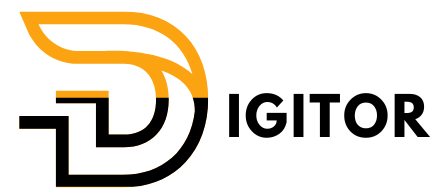How to Track and Improve Your Online Performance
How to Track and Improve Your Online Performance: In today’s digital landscape, tracking and improving your online performance is crucial for business success. By regularly monitoring key metrics and making data-driven adjustments, you can enhance your online presence, attract more customers, and achieve your marketing goals. This guide will walk you through essential steps and tools for tracking and improving your online performance.
Why Tracking Online Performance Is Important
How to Track and Improve Your Online Performance
Tracking your online performance allows you to understand how well your digital strategies are working. It provides insights into customer behavior, the effectiveness of your content, and the overall impact of your marketing efforts. Without proper tracking, you risk wasting resources on ineffective tactics and missing opportunities for growth.
Identifying Key Metrics to Monitor
To effectively track your online performance, you need to focus on key metrics that align with your business objectives. Some of the most important metrics include:
- Website Traffic: Measure the number of visitors to your website, their behavior, and the sources driving traffic.
- Conversion Rate: Track the percentage of visitors who complete a desired action, such as making a purchase or signing up for a newsletter.
- Bounce Rate: Monitor the percentage of visitors who leave your site after viewing only one page, indicating the relevance of your content.
- Engagement Metrics: Analyze likes, shares, comments, and other forms of engagement on your social media platforms.
- Search Engine Rankings: Track where your website ranks on search engines for relevant keywords.
Tools for Tracking Online Performance
Several tools can help you monitor and analyze your online performance. Some of the most popular include:
- Google Analytics: This powerful tool provides in-depth insights into website traffic, user behavior, and conversion rates.
- SEMrush: A comprehensive SEO tool that tracks keyword rankings, backlink profiles, and overall website health.
- Hootsuite: A social media management tool that tracks engagement, follower growth, and content performance across multiple platforms.
- Google Search Console: Helps you monitor your website’s presence in Google search results, track keyword performance, and identify technical issues.
Improving Your Online Performance
Once you’ve tracked your online performance, the next step is to identify areas for improvement and implement changes to optimize your results.
Optimize Your Website for User Experience
User experience (UX) plays a significant role in your online performance. A well-designed, easy-to-navigate website can reduce bounce rates and increase conversions. Consider the following UX improvements:
- Improve Page Load Speed: Slow-loading pages can drive visitors away. Use tools like Google PageSpeed Insights to identify and fix speed issues.
- Mobile Optimization: Ensure your website is fully responsive and optimized for mobile devices, as more users are browsing on their smartphones.
- Clear CTAs: Make sure your calls-to-action (CTAs) are clear, prominent, and encourage users to take the desired action.
Enhance Your Content Strategy
How to Track and Improve Your Online Performance
Content is key to attracting and retaining your audience. Regularly update your content to keep it fresh, relevant, and valuable to your audience. Consider the following tips:
- Keyword Optimization: Conduct keyword research to identify high-traffic keywords relevant to your business and incorporate them into your content.
- Engaging Formats: Use a mix of content formats, such as blogs, videos, infographics, and podcasts, to appeal to different audience preferences.
- User-Generated Content: Encourage your audience to create and share content related to your brand, which can boost engagement and credibility.
Leverage Social Media
Social media platforms are powerful tools for driving traffic, building brand awareness, and engaging with your audience. To improve your social media performance:
- Consistent Posting: Maintain a consistent posting schedule to keep your audience engaged and informed.
- Engage with Followers: Respond to comments, messages, and mentions to build relationships and foster loyalty.
- Analyze Social Performance: Use social media analytics to track what types of content resonate most with your audience and adjust your strategy accordingly.
How to Track and Improve Your Online Performance
Improving your online performance is an ongoing process. Regularly review your metrics, experiment with new strategies, and make data-driven adjustments to optimize your results.
Set Up Regular Performance Reviews
Establish a routine for reviewing your online performance metrics, such as weekly or monthly reports. This will help you stay on top of trends and quickly identify areas that need improvement.
A/B Testing
Conduct A/B testing on different aspects of your online presence, such as landing pages, CTAs, or email campaigns. Testing allows you to identify what works best and refine your strategies for better performance.
Conclusion
Tracking and improving your online performance is essential for staying competitive in the digital world. By focusing on key metrics, leveraging the right tools, and continuously optimizing your strategies, you can enhance your online presence and drive business success.
Ready to take your online performance to the next level? Contact Digitor to learn how our expert team can help you track and improve your digital strategies for optimal results.
External Resources
To deepen your understanding of social media marketing, you can explore Sprout Social’s guide to social media marketing and HubSpot’s comprehensive resources on social media.
Read more related articles to enhance your knowledge and make informed decisions about cosmetic procedures.
Best Social Media Agency in Delhi: Elevate Your Online Presence
What is a Social Media Agency? The Role of Agencies in Managing






